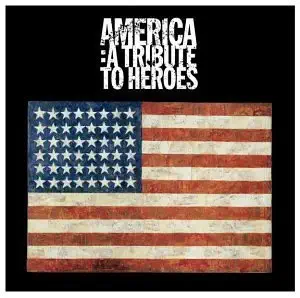The Blueprint |
|
Released: September 18, 2001 Charted: September 29, 2001 Peak: 13 US, 13 RB, 30 UK, 3 CN Sales (in millions): 2.3 US, 0.21 UK, 3.5 world (includes US and UK) Genre: rap |
Tracks: Song Title (date of single release, chart peaks) Click for codes to singles charts.
Total Running Time: 63:25 |
Rating: 4.148 out of 5.00 (average of 15 ratings)
Quotable: Nobody in New York could match Jay-Z rhyme for rhyme and nobody in New York had fresher beats.” – Jason Birchmeier, All Music Guide Awards: (Click on award to learn more). |
About the Album: After the death of the Notorious B.I.G., Jay-Z “claimed New York’s hip-hop throne” AMG At the time, “many smirked and some even snickered.” AMG However, he “solidified his position with gigantic hits like ‘Big Pimpin’ and ‘I Just Wanna Love You (Give It 2 Me).’” AMG On The Blueprint, “everything came together to assert Hova as the best rapper around” FO and “no one was smirking and no one dared snicker.” AMG “Everything that makes Jay-Z a true king can be heard on this LP. From the soulful seventies beats, the introduction of Kanye as his producer, to the way he tells stories with consummate ease.” FO “Nobody in New York could match Jay-Z rhyme for rhyme and nobody in New York had fresher beats – and many would argue that Jigga’s reign was not just confined to New York but was, in fact, national.” AMG “Jay-Z took on anyone and everyone who wanted to sit on his throne.” RS’20 For example, on Takeover, “one of the greatest diss tracks of all time,” FO “he brutally dismisses two of his most formidable opponents, Mobb Deep and Nas.” AMG “There’s little doubt that Jay-Z’s status as the top MC in the game is justified.” AMG “Leadoff single, Izzo (H.O.V.A.), dominated urban radio numerous weeks before the album hit the streets, generating so much demand that Def Jam had to push up the album’s street date because it was being so heavily bootlegged.” AMG “With dynamic production by Kanye West,” RS’20 and “a joyous sample of the Jackson 5’s ‘I Want You Back’” NRR it “gave him his first Top 10 single. Jay-Z elevates clever rhymes and innovations with an unmatched air of calm control and a cavalier confidence” RS’20 in a song complete “with a rumination on changing perceptions of black wealth.” NRR “Jay-Z continues the braggadocio with U Don’t Know.” Perhaps the most bombastic song on the album – if not Jay-Z’s career (‘I will not lose, ever’) – it doubles as a financial history of his life…He opens up about the wealth gathered as a drug dealer (‘So much coke that you could run a slalom’) before explaining a musical revelation (‘Could make forty [thousand dollars] off a brick, but one rhyme could beat that’) and offering an accounting of his millions – ‘Put me anywhere on God’s green Earth,’ he explains, ‘I triple my worth..’” NRR All the songs are “stunning, to the point where the album seems almost flawless.” AMG “The album packs a powerful range of topics and emotions into its 60-plus minutes.” NRR “When Hova isn’t taking shots at record executives, cops, critics, haters, biters, and his absent dad (and still, sadly, using the word “faggot”), he inches toward vulnerability on Song Cry.” RS’20 The song “reveals a version of the rapper willing to show emotion and admit mistakes,” NRR such as when “he reminisces over a lost love, his voice crackling with partially-supressed grief as he acknowledges the toll his infidelity took on the relationship.” NRR Far Out referred to that song and Never Change as “moments that will live in his legacy for a long time to come.” FO “Besides rhymes that challenge those on Reasonable Doubt as the most crafted of Jay-Z’s career to date in terms of not only lyrics but also flow and delivery, The Blueprint also boasts some of his most extravagant beats, courtesy of impressive newcomers Kayne West and Just Blaze.” AMG “If the rhymes and beats alone don’t make The Blueprint a career highlight for Jay-Z, the minimal guest appearances surely do.” AMG With the exception of a duet with Eminem, “listeners get exactly what they want: Jay-Z and nothing but Jay-Z, over beats so loaded with marvelously flipped samples the songs don't even need big vocal hooks.” AMG “Jay-Z spent the first half-decade of his career in a delicate balancing act: trying to stay true to the hard-edged sound and subject matter that drew fans to his debut, while capturing new crowds with the glitzy production and pop hooks that characterized his second. Perhaps more than any album in his career--and certainly more than any to that point – Blueprint accomplished that feat.” NRR “Uneven albums like Hard Knock Life were the crossover attempts.” AMG This is “a fully realized masterpiece” AMG and “easily Jay-Z’s greatest album of all time.” FO The album has the noted accomplishment of being the first of the 21st century to be selected by the National Recording Registry. It represents a peak in the career of “a son of Brooklyn’s notorious housing projects who became hip-hop’s first billionaire in 2019” NRR and would be crowned as the solo artist with the most number one albums for a solo artist. NRR |
Resources and Related Links:
First posted 3/30/2008; last updated 4/28/2022. |










